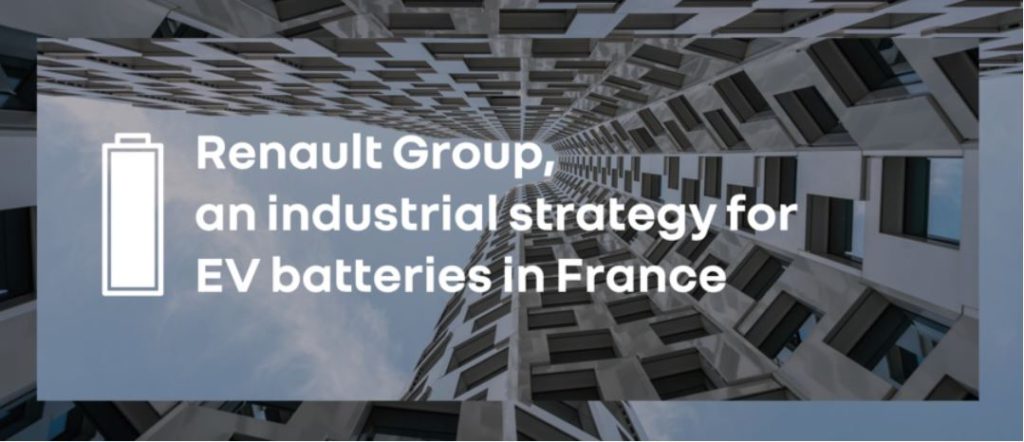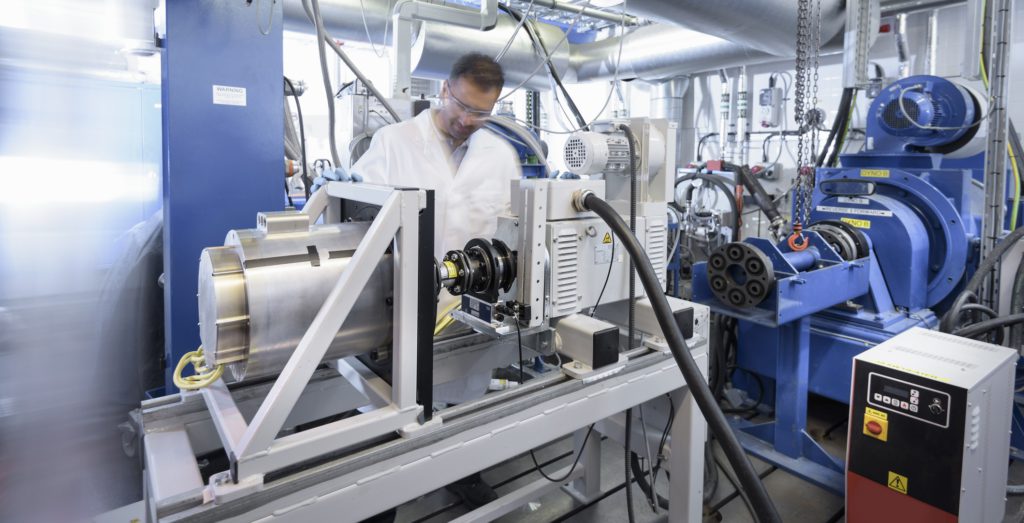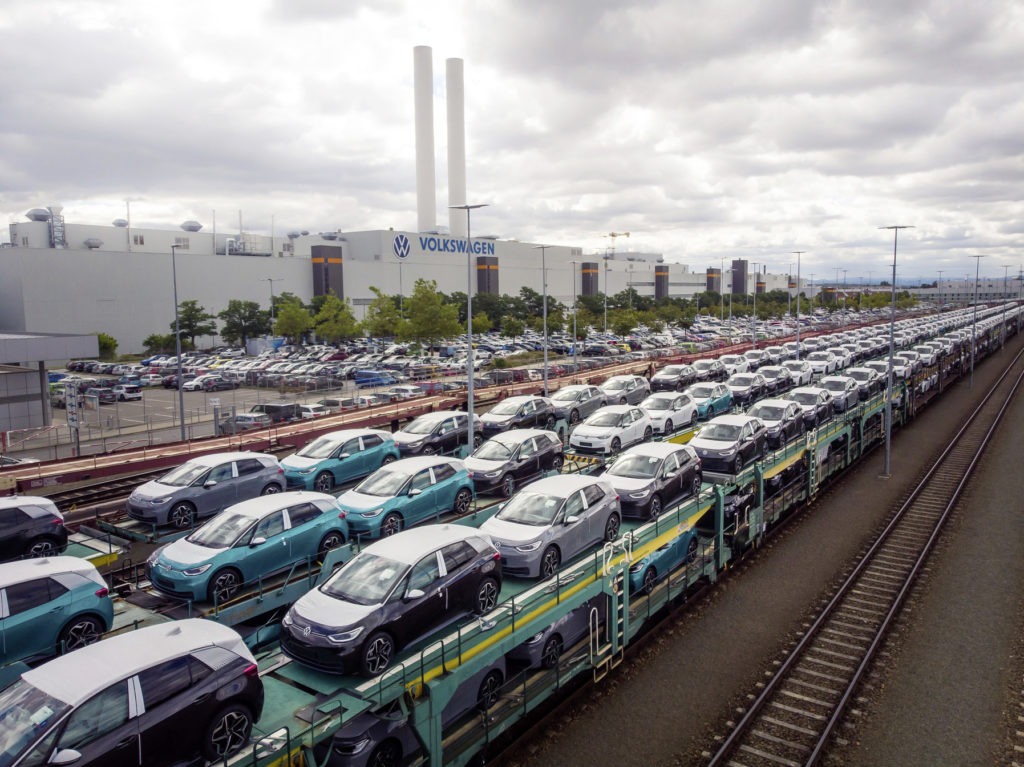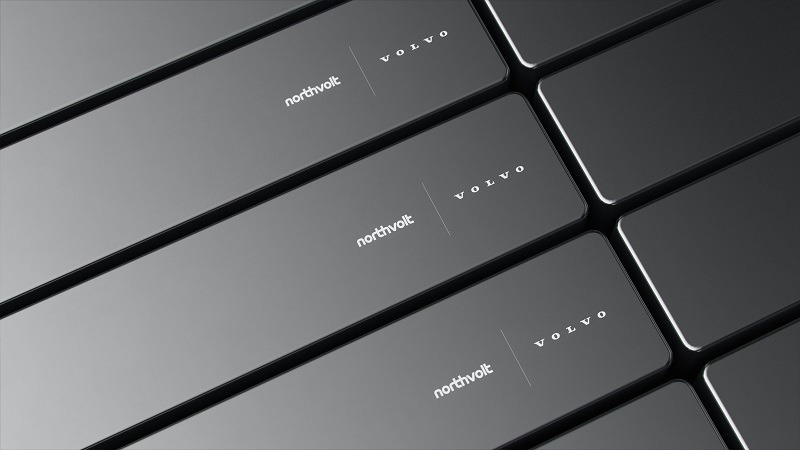Renault to establish French gigafactories with new partnerships
28 June 2021

Renault Group has announced major partnerships in the fields of electrically-chargeable vehicle (EV) batteries and power-electronics systems. The carmaker wants to boost the manufacturing of critical EV components in its domestic market.
Renault is entering a strategic partnership with Envision AESC to set up a gigafactory in Douai, close to its recently announced ElectriCity facility. Envision AESC specialises in developing low-carbon battery plants, and is a longstanding partner of Renault’s alliance partner Nissan. The carmaker will hope its new facility can reduce its overall carbon footprint when manufacturing lithium-ion cells.
Additionally, the carmaker has also signed a memorandum of understanding (MoU) with French startup Verkor, to develop and manufacture high-performance battery cells. The combination of these two partnerships, alongside the Renault ElectriCity industrial cluster, will create around 4,500 jobs in France by 2030.
Gigafactory plans
The partnership with Envision AESC will develop a gigafactory with a capacity of 9GWh in 2024. The companies aim to increase this to 24GWh by 2030. Envision Group will invest up to €2 billion to produce cost-competitive, low-carbon and safe batteries with the latest technology for electric models, including the future Renault 5.
Thanks to this partnership, Envision AESC forecasts the creation of 2,500 new jobs by 2030. The proximity of Envision AESC’s gigafactory to Renault ElectriCity production sites at Douai, Maubeuge and Ruitz will create 700 additional jobs in the Hauts-de-France region.
The low-carbon nature of this new plant will also meet objectives outlined in the European Green Deal and for the development of closed-loop recycling solutions for production waste and end-of-life batteries. In line with commitments made by the Renault Group, it will significantly contribute to achieving carbon neutrality in Europe by 2040 and worldwide by 2050, with EV sales making up 90% of all Renault-brand sales by 2030.
The carmaker will also take a 20% stake in Verkor and join the consortium created around the French startup in 2020. This group aims to tackle challenges relating to digitalisation, de-carbonisation, and the strengthening of the French and European industries within the sector.
Renault Group and Verkor intend to develop a high-performance battery suitable for the C and higher segments of the Renault range and for Alpine models. Together with the consortium, they will help create more than 200 direct jobs.
The initial phases of the partnership will involve the financing of an R&D centre (Verkor Innovation Centre) and a pilot line for battery-cell and module prototyping and production in France as early as 2022. The second phase will see Verkor moving forward to create the first gigafactory for high-performance batteries in France, with an initial capacity of 10GWh for the Renault Group from 2026, potentially rising to 20GWh by 2030.
‘We are proud to be associated with Renault Group and look forward to delivering on our common vision of making e-mobility widely available through this partnership,’ said Benoit Lemaignan, CEO of Verkor. ‘This is a major deal which demonstrates our progress along our roadmap to generate up to 50GWh of battery-cell production capacity by 2030 – a cornerstone in developing a competitive, sovereign and sustainable battery supply chain in Europe.’
Battery reliance
There is an increasing trend amongst vehicle manufacturers to establish gigafactories close to their plants. This year, Volkswagen announced that it was taking control of a joint-venture with Northvolt to build a facility in Germany, one of six planned gigafactories. Volvo also announced a partnership with Northvolt for a facility in Sweden, while Nissan is expected to announce plans for a site close to its UK plant.
Currently, the vast majority of battery cells for EVs are produced in Asia and shipped to Europe. Not only does this lengthen the supply chain and expose it to potential delays – such as the Suez Canal crisis earlier this year – but it also increases the carbon footprint of the technology. The best way to control both supply and emissions is to build sites close to vehicle plants, a path which Renault is now also following.
The new partnerships go hand-in-hand with existing supply agreements held by Renault Group. This includes the current deal with LG Chem, which supplies battery modules for the carmaker’s EV range and the upcoming MéganE model. Research also continues within the alliance to deploy solid-state battery technology from 2030 with the ASSB project (All Solid-State Battery technology).
‘Our battery strategy builds on Renault Group’s ten years of experience and investment in the electric-mobility value chain,’ commented Luca de Meo, CEO of Renault Group. ‘The latest strategic partnerships with Envision AESC and Verkor greatly bolster our position as we ensure the Europe-based production of one million electric vehicles by 2030.
‘This marks a major milestone as we strengthen our competitive edge by rooting our Group in the underlying momentum of French industry and striving to reach our carbon neutrality objectives. The Group thus reaffirms its willingness to produce popular, affordable, and cost-effective electric cars in France.’
Powering forward
Renault Group has also unveiled a deal with STMicroelectronics. This is focused on the design, development, manufacturing and supply of the technology company’s products and related packaging solutions for the power-electronics systems of EV and hybrid models.
According to the carmaker, these technologies will have a significant impact on the driving range and charging of EVs by reducing power losses and improving efficiency, resulting in lower battery costs, more kilometres per charge, shorter charging times, and reduced user-cost.
The two companies will work together to improve the power performance of Renault’s Group’s applications for electric and hybrid vehicles, based on STMicroelectronics’ wide-bandgap semiconductor technologies and products. They will collaborate on developing efficient, rightsized, and modular components based on the understanding of Renault Group’s technology needs for silicon carbide (SiC) devices, gallium nitride (GaN) transistors with related packages and modules. As Renault’s key innovation partner, STMicroelectronics will benefit from significant volumes guaranteed for the annual usage of these power modules and transistors from 2026-2030.
‘We are delighted to work with market leader STMicroelectronics to integrate their advanced power electronics and to co-develop technologies to further improve the energy capacity of our electric and hybrid-vehicle batteries and their performance on the road and when charging,’ said de Meo. ‘This partnership secures future supplies of key components, which will significantly contribute to reducing wasted energy by 45% and decreasing the cost of the e-powertrain by 30%, helping us fulfil our ambition of making electric vehicles affordable, profitable and popular.’


